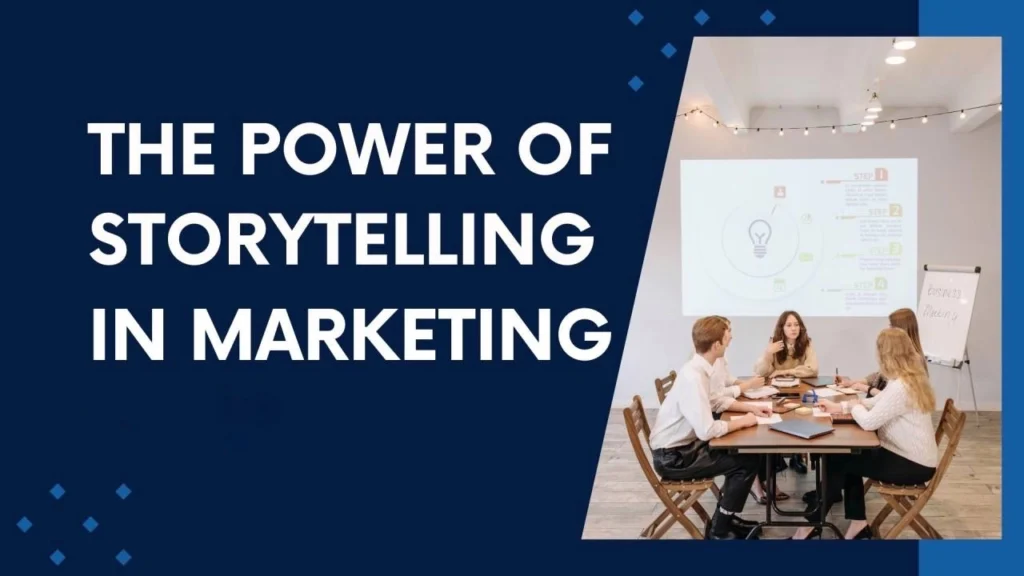
- When the world throws information at people, it becomes really tough to capture the attention of your target audience. It’s here that storytelling finds an application. Not just a buzzword in digital marketing, storytelling can be an incredible strategy to differentiate your brand, emotionally connect, and lead to conversion. Let’s find out why storytelling matters in digital marketing and how we can effectively utilize it.
- Why Storytelling Matters
- Emotional Engagement.Each story is full of emotions. They bind themselves personally to the audience, making it more memorable than the dry facts and statistics. Now, if you can bring your brand’s values and mission into a story, then it’s easier to create an emotional tie that leads toward brand loyalty.
- Memorability
- Our brains are hard-wired to remember stories. In fact, evidence even shows that information presented in some kind of narrative sense is remembered up to 22 times more frequently than information presented in another, non-narrative form. This makes memorability so important in digital marketing – it’s very competitive.
- Brands Differentiation
- Storytelling puts you above the noise in a crowded market. Every brand has a story; it is about finding your own and sharing it with the target audience in such a way that the story resonates with them. This differentiates you from your competitors, or in other words, can become the deciding factor for customers in choosing between similar products or services.
- Building Trust
- Authentic stories create transparency and trust. When brands share the journeys, including hardships and victories, they humanize themselves. That openness will build credibility to entice consumers to pick your brand over others.
- How to Apply Storytelling in Your Digital Marketing Strategy
- Know Your Audience
- Identify your audience before you try to tell your story. When you do your market research, you already understand the needs and demands of your market, what they feel, and what they want to accomplish. It will make your story more authentic when you tailor it to their needs and experiences.
- Develop Your Brand Story
- It should include your mission and values and the journey that got you to where you are. Think about things like: origin, challenges overcome, and what impact you want on your audience and on the world.
- Use Visuals
- Visual narration really gives a special effect to your story. Use pictures, videos, infographics, and animations to explain your story. Instagram and TikTok rely heavily on visual material, so they become perfect places to tell your story.
- Narrative Arc
- Every good story has a beginning, a middle part, and an end. Begin with the hook in order to capture people’s attention, build up the plot through relatable characters or challenges, and then conclude with a resolution that ties up your brand’s message or call to action.
- Use User-Generated Content
- Encourage your customers to share their stories that relate to your brand. The authentication and social proof of user-generated content build your narrative while letting your audience share in your brand’s journey.
- Storytelling Across Channels
- Consistency breeds excellence. Make sure that your approach to storytelling is cohesive across all of your digital marketing channels—social, email marketing, blog, and on your website. That cohesiveness will hammer home brand recognition and trust.
- Examples of Successful Storytelling
- Nike: Nike’s “Just Do It” campaign always has stories of heroes overcome adversity. Stories of perseverance that also pay tribute to the unifying slogan for the brand.
- Airbnb: What Airbnb does best, mainly, is talking about stories from its hosts and guests. Experiences and personal anecdotes are unique to an extent as they find a sense of belonging in themselves that goes beyond mere accommodation.
- Coca-Cola: Coca-Cola “Share a Coke” campaign personalized the product by putting names on bottles, encouraging consumers to share their own stories of what it means to enjoy a Coke with friends and family.
- Conclusion
- With digital marketing, you can tell a story. Storytelling allows for emotive engagement, the fostering of trust, and the differentiation needed in an already over-saturated marketplace. When you get to understand your audience and you craft compelling
- stories, this is how you create meaningful connections that drive engagement and conversions at the end. At the end of it all, it’s not about selling a product; it’s a story that resonates with your audience, connecting in ways you never thought possible. So, what’s your story?